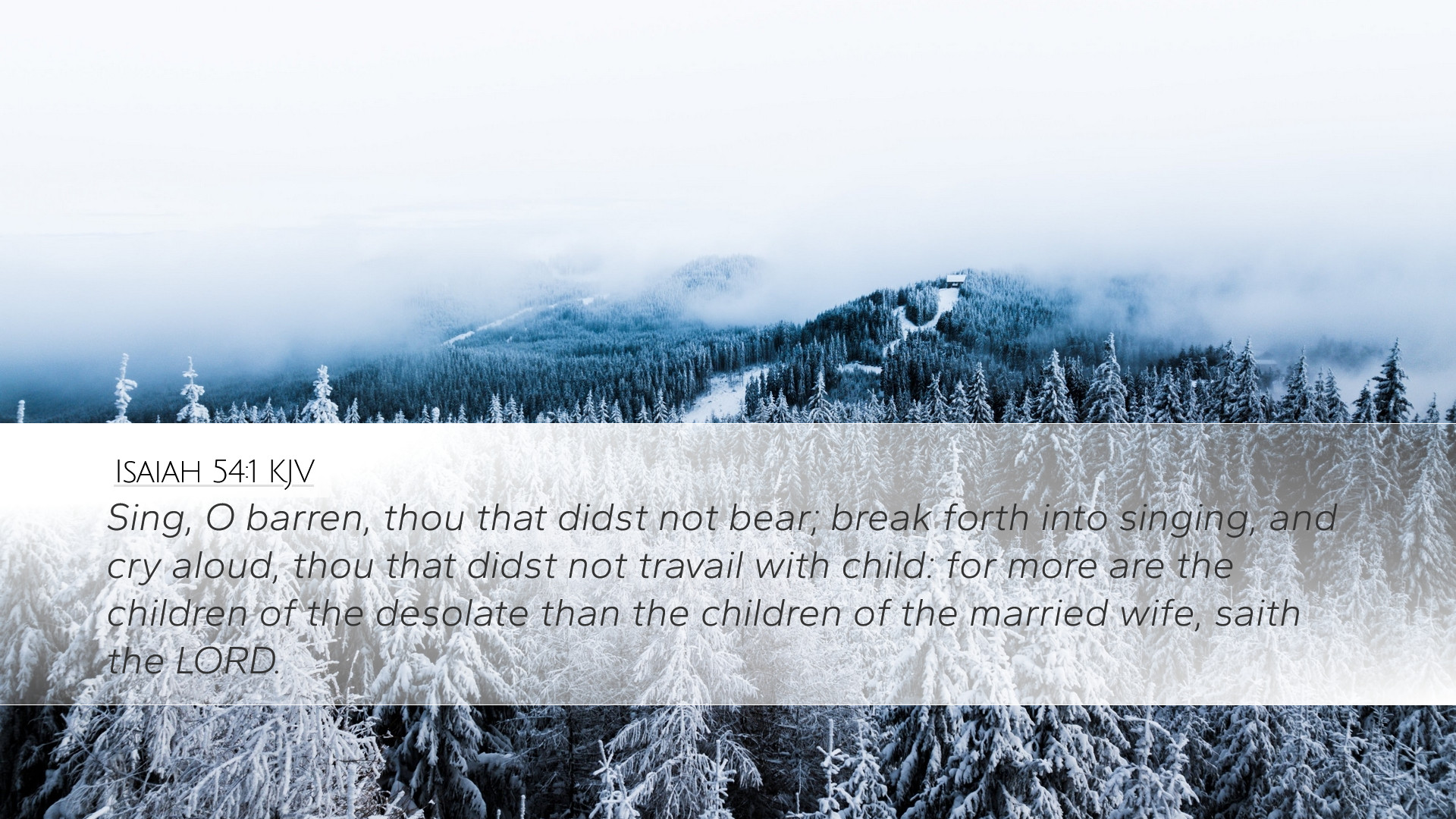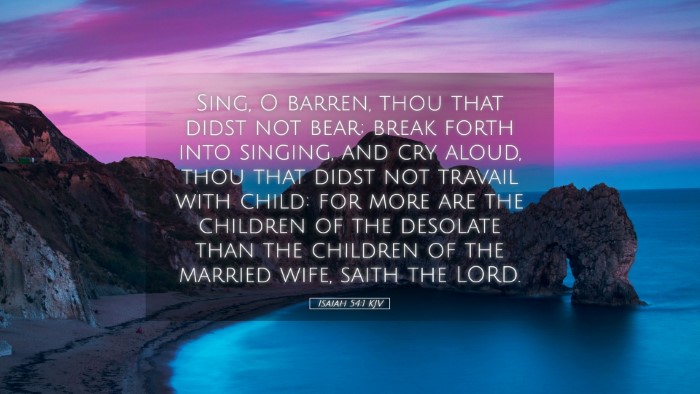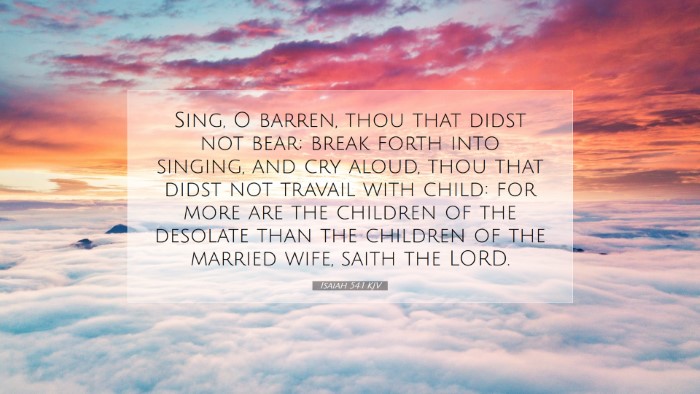Commentary on Isaiah 54:1
Isaiah 54:1 states: "Sing, O barren, thou that didst not bear; break forth into singing, and cry aloud, thou that didst not travail with child: for more are the children of the desolate than the children of the married wife, saith the LORD." This verse, rich in metaphor and prophetic significance, brings forth themes of hope, restoration, and divine promise.
Contextual Background
The context of Isaiah 54 arises after the profound declarations of the previous chapters, where God's judgment and mercy are prominently featured. As the Israelites faced exile and despair, this chapter serves as a reminder of God's unwavering faithfulness and commitment to His covenant people.
Thematic Insights
-
Joy in Desolation:
Matthew Henry notes that the command to "sing" suggests a transformation from sorrow to joy, emphasizing that even those who feel desolate should rejoice at God's promises. Barren women were often stigmatized, yet here the desolate are encouraged to sing as a declaration of faith in God's forthcoming blessings.
-
Expansion of God's Family:
Albert Barnes expands on the idea of fruitfulness by stating that the barren woman represents the Church, which, though seemingly unproductive or abandoned, will give birth to many spiritual offspring. This is a statement of God's redemptive work, emphasizing that the Church will grow and multiply as God fulfills His promises.
-
Contrast Between Barren and Fruitful:
Adam Clarke elaborates on the contrast drawn in this verse between the "desolate" and the "married wife." The former, symbolizing a state of abandonment and lack, will surpass in offspring than the latter, indicating a divine reversal of fortunes where God's people will experience unprecedented blessings.
Exegesis of Key Phrases
-
"Sing, O barren":
This call to worship and celebration serves as a counterintuitive directive. The barren are those who feel the weight of emptiness and despair. The command to sing signifies that God is about to do a miraculous work in their lives, turning mourning into joy.
-
"Break forth into singing":
This phrase highlights the urgency and intensity of the reaction expected from God’s people. It calls for an exuberant celebration of faith in anticipation of God's promises being fulfilled.
-
"More are the children of the desolate":
This statement illustrates a divine paradox whereby abundance arises from what appears lack. It signifies that God's grace can bring life and community from what looks barren.
Theological Reflections
Isaiah 54:1 serves as a profound theological declaration regarding the nature of God's salvific plan. There are notable implications concerning the sovereignty of God and His ability to bring forth life from death and hope from despair. For theologians and scholars, the reflections on this verse make it apparent that the barrenness may be reflective of humanity's spiritual condition, from which God can generate new life through Christ.
Pastoral Applications
-
Encouragement for the Downtrodden:
Pastors can derive practical applications from this verse, offering hope to those who feel spiritually barren or unproductive. By asserting that God has a purpose and plan, they can encourage congregants to embrace their identities as children of God, destined to bear fruit.
-
Community Growth and Evangelism:
The theme of expansion encourages church leaders to embrace outreach efforts, trusting that God can produce growth through the faithful despite their present circumstances. Emphasizing spiritual multiplication can ignite passion for evangelism.
-
Hope Amidst Adversity:
This verse acts as a reminder that God's promises are often realized in seemingly impossible situations. Pastoral care can be directed toward fostering resilience in the face of life's adversities, reminding the congregation that God's blessings might break forth unexpectedly.
Conclusion
In summary, Isaiah 54:1 stands as a monumental verse filled with hope for the desolate and promise for the faithful. As scholars, students, and pastors reflect on its implications, they are encouraged to remember that God delights in turning devastation into restoration. The message of this verse resonates with both the challenges and the triumphs faced by God's people throughout history, affirming that what appears barren can become a source of abundant life through divine intervention.


